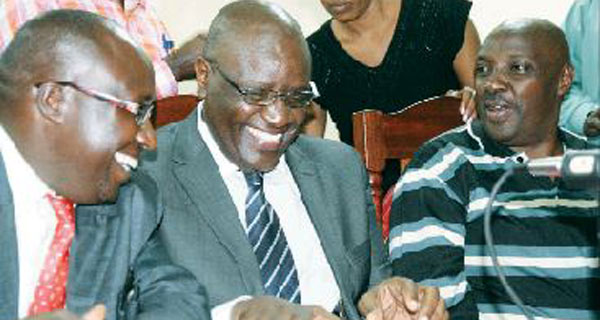×
The Standard e-Paper
Smart Minds Choose Us
 |
| Nakuru Senator James Mungai (centre) with county ward representatives during a meeting in Naivasha to address an impasse between Nakuru MCAs and Naivasha MP John Kihagi. The senator called on the MP to respect the ward officials. [PHOTO: ANTONY GITONGA/STANDARD] |
By ALPHONCE SHIUNDU and PAUL MUTUA
Kenya: The conflict between governors and senators appears to be far from over after the latter announced plans to amend the law to ensure the bulk of the money allocated to the counties is used for development projects.